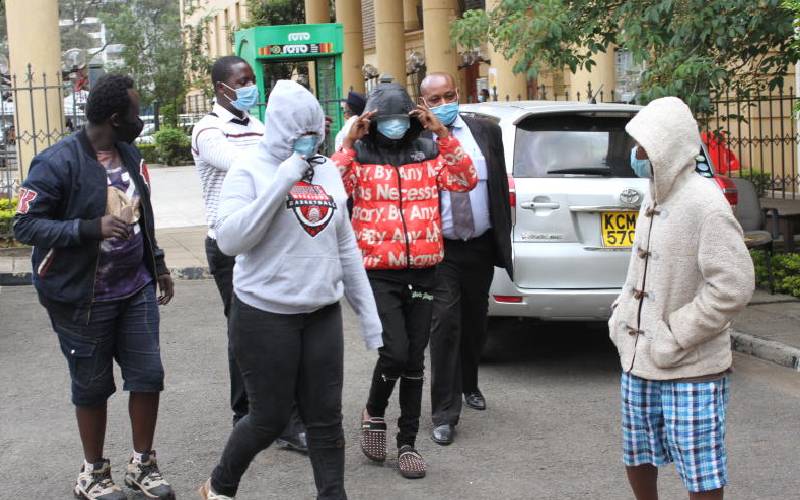×
The Standard e-Paper
Join Thousands Daily

When suspects of child trafficking were arrested and presented before the court. [Collins Kweyu, Standard]
John (not his real name) had a mobile phone, which his mother had given him for his online studies. However, his mother found phone chats with sexual content, as well as missed video calls from a male adult who had been in contact with John.